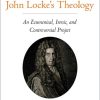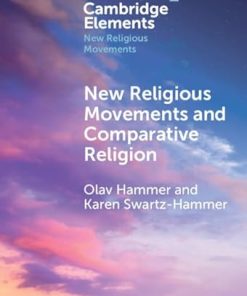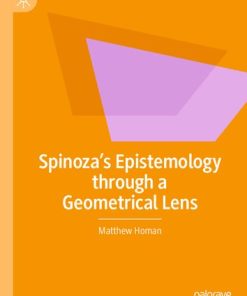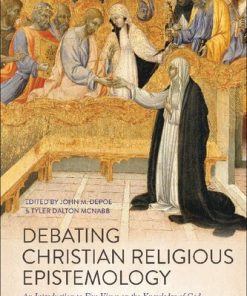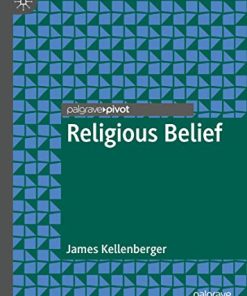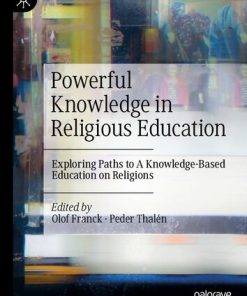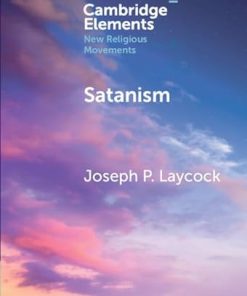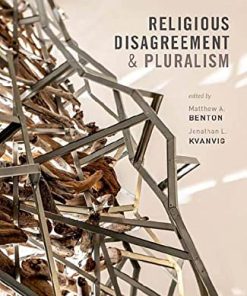Knowledge Belief and God New Insights in Religious Epistemology 1st edition by Matthew Benton 0192519603 9780192519603
$50.00 Original price was: $50.00.$25.00Current price is: $25.00.
Knowledge, Belief, and God: New Insights in Religious Epistemology 1st edition by Matthew A. Benton – Ebook PDF Instant Download/DeliveryISBN: 0192519603, 9780192519603
Full download Knowledge, Belief, and God: New Insights in Religious Epistemology 1st edition after payment.
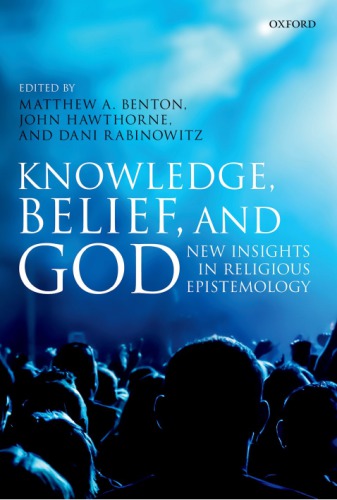
Product details:
ISBN-10 : 0192519603
ISBN-13 : 9780192519603
Author : Matthew A. Benton
Recent decades have seen a fertile period of theorizing within mainstream epistemology which has had a dramatic impact on how epistemology is done. Investigations into contextualist and pragmatic dimensions of knowledge suggest radically new ways of meeting skeptical challenges and of understanding the relation between the epistemological and practical environment. New insights from social epistemology and formal epistemology about defeat, testimony, a priority, probability, and the nature of evidence all have a potentially revolutionary effect on how we understand our epistemological place in the world. Religion is the place where such rethinking can potentially have its deepest impact and importance. Yet there has been surprisingly little infiltration of these new ideas into philosophy of religion and the epistemology of religious belief. Knowledge, Belief, and God incorporates these myriad new developments in mainstream epistemology, and extends these developments to questions and arguments in religious epistemology. The investigations proposed in this volume offer substantial new life, breadth, and sophistication to issues in the philosophy of religion and analytic theology. They pose original questions and shed new light on long-standing issues in religious epistemology; and these developments will in turn generate contributions to epistemology itself, since religious belief provides a vital testing ground for recent epistemological ideas.
Knowledge, Belief, and God: New Insights in Religious Epistemology 1st Table of contents:
Part I. Historical
1. Hume, Defeat, and Miracle Reports
1.1 Hume’s Argument
1.2 The Role of Unlikelihood
1.3 An Alternative Picture of Defeat
2. Testimony, Error, and Reasonable Belief in Medieval Religious Epistemology
2.1 Thomas Aquinas
2.2 Duns Scotus
3. Duns Scotus’s Epistemic Argument against Divine Illumination
3.1 Preliminaries
3.2 Sensation, Cognition, and Error
3.3 Scotus’s Epistemic Argument
3.4 A Closer Look
3.5 Conclusion: Refining Safety
4. Knowledge and the Cathartic Value of Repentance
4.1
4.2
4.3
4.4
4.5
Part II. Formal
5. Infinite Cardinalities, Measuring Knowledge, and Probabilities in Fine-Tuning Arguments
5.1 Measuring Knowledge
5.2 Fine-Tuning and Coarse-Tuning
6. A Theological Critique of the Fine-Tuning Argument
6.1 Preliminaries
6.2 Fine-Tuning of Initial Conditions
6.3 Objective Chances Screen Off God’s Existence
6.4 Can God Override the Chances?
6.5 Fine-Tuning of Constants
6.6 Fine-Tuning of Laws
6.7 Conclusion
7. Fine-Tuning Fine-Tuning
7.1 Introduction
7.2 Probabilistic Foundations
7.3 Terminological Clarifications
7.4 Probability and Explanation
7.5 The Core Argument
7.6 Narrow Strategy
7.7 Broad Strategy
7.8 Concluding Remarks
Irrelevant
Not Well Defined
Inaccurate
8. Reasoning with Plenitude
Part III. Social
9. Testimony amidst Diversity
9.1 The Facts of Religious Diversity
9.2 Religious Diversity and Epistemic (Un)reliability
9.3 Defeaters Arising from the Facts of Religious Diversity
9.4 Reflective Knowledge
9.5 Conclusion
10. Testimonial Pessimism
10.1 Testimonial Pessimism and Mysticism
10.2 Emotionist Semantics, Sketched
10.3 Singular Thought
10.4 Moral Testimony Pessimism
10.5 Varieties of Pessimism
10.6 Aesthetic Testimony Pessimism
10.7 Gurus, Drugs, and Martin Luther King
10.8 Conclusion
11. Experts and Peer Disagreement
11.1 Introduction
11.2 Peer Disagreement and the Threat to Experts
11.3 The Expert-as-Authority Model
11.4 The Expert-as-Advisor Model
11.5 Conclusion
12. Know-How and Acts of Faith
12.1 Introduction
12.2 Some Preliminaries
12.3 Motivating the Strategy: A Parallel in Moral Psychology
12.4 From Acts of Faith to the Nature of Faith
12.5 The Epistemology of Faith
12.6 Conclusion
Part IV. Rational
13. Pragmatic Encroachment and Theistic Knowledge
13.1 Introduction
13.2 The Old Pascalian Problem
13.3 The New Pascalian Problem
13.4 Counting the Costs
13.5 When Not Believing Is Costly
13.6 A Puzzling Knowability Asymmetry
13.7 Conclusion
14. Delusions of Knowledge Concerning God’s Existence
14.1 My Suspicion
14.2 Philosophical Arguments and Knowledge
14.3 Religious Experience as a Potential Source of Knowledge that God Exists, the Challenge from Religious Diversity, and the Nature of Some Religious Experience
14.4 My Own History
14.5 Those Who Have Given Up the Faith
14.6 Why I’m Not Inclined to Accept Positive Self-Evaluations
14.7 Acting Certain of (Way) Too Much
14.8 Two More Worries about my Suspicion
14.9 Two Uses of “Agnostic” and the Relation between Them
15. Moderate Modal Skepticism
15.1
15.2
15.3
15.4
15.5
16. Phenomenal Conservatism and Religious Experience
16.1
16.2
16.3
People also search for Knowledge, Belief, and God: New Insights in Religious Epistemology 1st:
belief in and personal knowledge of god
belief in and knowledge of god
what is god’s knowledge
knowledge belief and opinion
knowledge and belief examples
Tags: Knowledge, Belief, God, New Insights, Religious Epistemology, Matthew Benton
You may also like…
Religion & Spirituality - Religious Studies
Politics & Philosophy - Anthropology
Spinoza’s Epistemology through a Geometrical Lens Matthew Homan
Politics & Philosophy - Anthropology
Religion & Spirituality
Schools & Teaching
Politics & Philosophy - General & Miscellaneous Philosophy
Topics of Thought: The Logic of Knowledge, Belief, Imagination Francesco Berto
Religion & Spirituality - Other Religions
Politics & Philosophy - Social Sciences
Belief, Agency, and Knowledge: Essays on Epistemic Normativity by Matthew Chrisman
Religion & Spirituality - Other Religions


